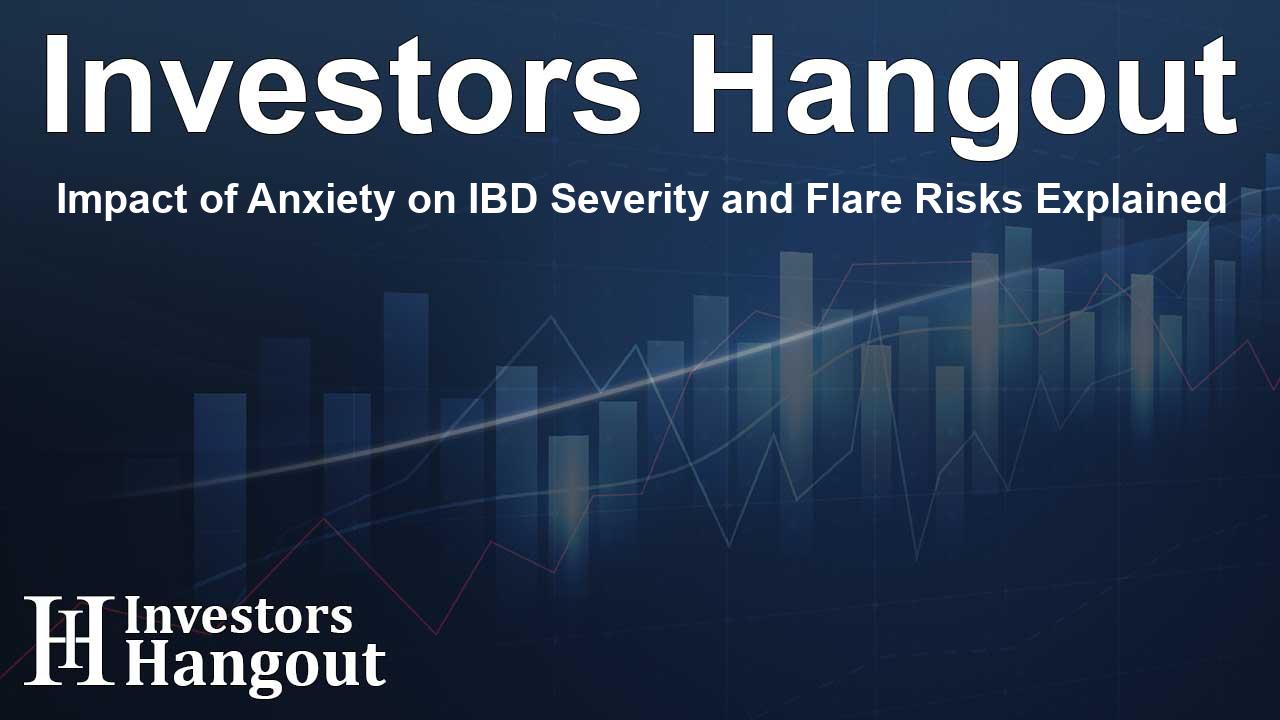Impact of Anxiety on IBD Severity and Flare Risks Explained

Understanding the Link Between Anxiety and IBD
Recent findings presented by SonarMD have revealed a significant connection between anxiety and the risks associated with inflammatory bowel disease (IBD). This highlights the critical role of mental health in managing chronic conditions effectively. As we dive into these findings, it becomes clear that integrating mental health support in treatment plans for IBD patients is essential.
Study Insights: A Closer Look
The research conducted examined a group of 643 IBD patients enrolled in SonarMD’s care coordination platform, which emphasizes proactive patient engagement, monitoring disease activity, and risk stratification. This approach allows healthcare providers to enhance their support for patients, ensuring they receive comprehensive care tailored to their specific needs.
Prevalence of Anxiety Among IBD Patients
The study found that about 11.8% of the participants screened positive for anxiety symptoms, marking an important consideration for healthcare providers in the realm of gastrointestinal health. The presence of anxiety can exacerbate physical health conditions, making it crucial for clinicians to be aware of their patients' mental states.
The Correlation with Depression
Moreover, the study indicated that anxiety symptoms were linked to a more severe incidence of depression among patients. About 49% of those exhibiting anxiety also demonstrated signs of depression, which greatly impacts their overall well-being and their ability to manage IBD effectively.
The Severity of Disease and Risks of Flares
Another critical discovery from the study is that patients with anxiety symptoms displayed a substantially higher rate of disease severity. Approximately 42% of these patients were classified within the top quintile for disease risk, compared to only 15% of their non-anxious counterparts. This statistic highlights the urgent need for healthcare systems to address mental health accommodations within chronic disease management frameworks.
Flare Rates and Their Implications
Furthermore, nearly doubling the flare rate, 25% of anxious patients experienced flare-ups within a six-month period, compared to just 13% among those without anxiety. This finding serves as a wakeup call for the healthcare community to recognize that psychological factors are deeply intertwined with patient health outcomes.
The Way Forward: Integrating Mental Health in Care Models
As Beth Houck, CEO of SonarMD, emphasizes, recognizing and tackling mental health issues must become a standard practice in managing IBD effectively. The integration of mental health assessment tools in VBC models is essential for advancing the quality of care that patients receive. By focusing on both physical and mental health, healthcare providers can create a more supportive framework for patients battling chronic gastrointestinal issues.
About SonarMD and Its Mission
SonarMD redefines care for complex chronic GI diseases by focusing on both the physical and emotional health of patients. The company employs predictive analytics to detect potential health declines early on, allowing both patients and specialists to intervene before complications arise. This holistic approach not only enhances treatment outcomes but also addresses vital aspects like nutrition, emotional well-being, and sleep quality, further increasing the overall standard of care.
Frequently Asked Questions
What is the relationship between anxiety and IBD?
Anxiety is significantly linked to higher risks of disease flares and increased severity in patients with IBD, indicating the need for integrated mental health support.
How prevalent is anxiety in IBD patients?
In a recent study, approximately 11.8% of IBD patients screened positive for anxiety symptoms, highlighting a common health concern.
What are the implications of depression among anxious IBD patients?
The study found that anxious IBD patients had a fivefold increased likelihood of also suffering from depression, pointing out the need for mental health screenings.
What are the benefits of integrating mental healthcare in IBD treatment?
Incorporating mental health care can lead to better patient outcomes, improved management of symptoms, and reduced flare rates.
How does SonarMD support patients with IBD?
SonarMD offers a comprehensive care platform that includes proactive monitoring, emotional health services, and personalized patient engagement strategies.
About The Author
Contact Owen Jenkins privately here. Or send an email with ATTN: Owen Jenkins as the subject to contact@investorshangout.com.
About Investors Hangout
Investors Hangout is a leading online stock forum for financial discussion and learning, offering a wide range of free tools and resources. It draws in traders of all levels, who exchange market knowledge, investigate trading tactics, and keep an eye on industry developments in real time. Featuring financial articles, stock message boards, quotes, charts, company profiles, and live news updates. Through cooperative learning and a wealth of informational resources, it helps users from novices creating their first portfolios to experts honing their techniques. Join Investors Hangout today: https://investorshangout.com/
The content of this article is based on factual, publicly available information and does not represent legal, financial, or investment advice. Investors Hangout does not offer financial advice, and the author is not a licensed financial advisor. Consult a qualified advisor before making any financial or investment decisions based on this article. This article should not be considered advice to purchase, sell, or hold any securities or other investments. If any of the material provided here is inaccurate, please contact us for corrections.
